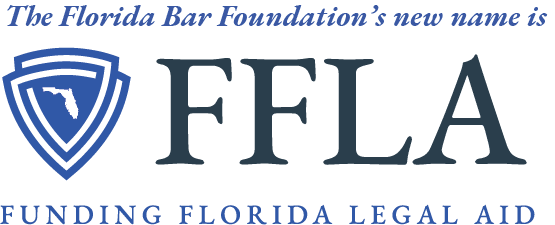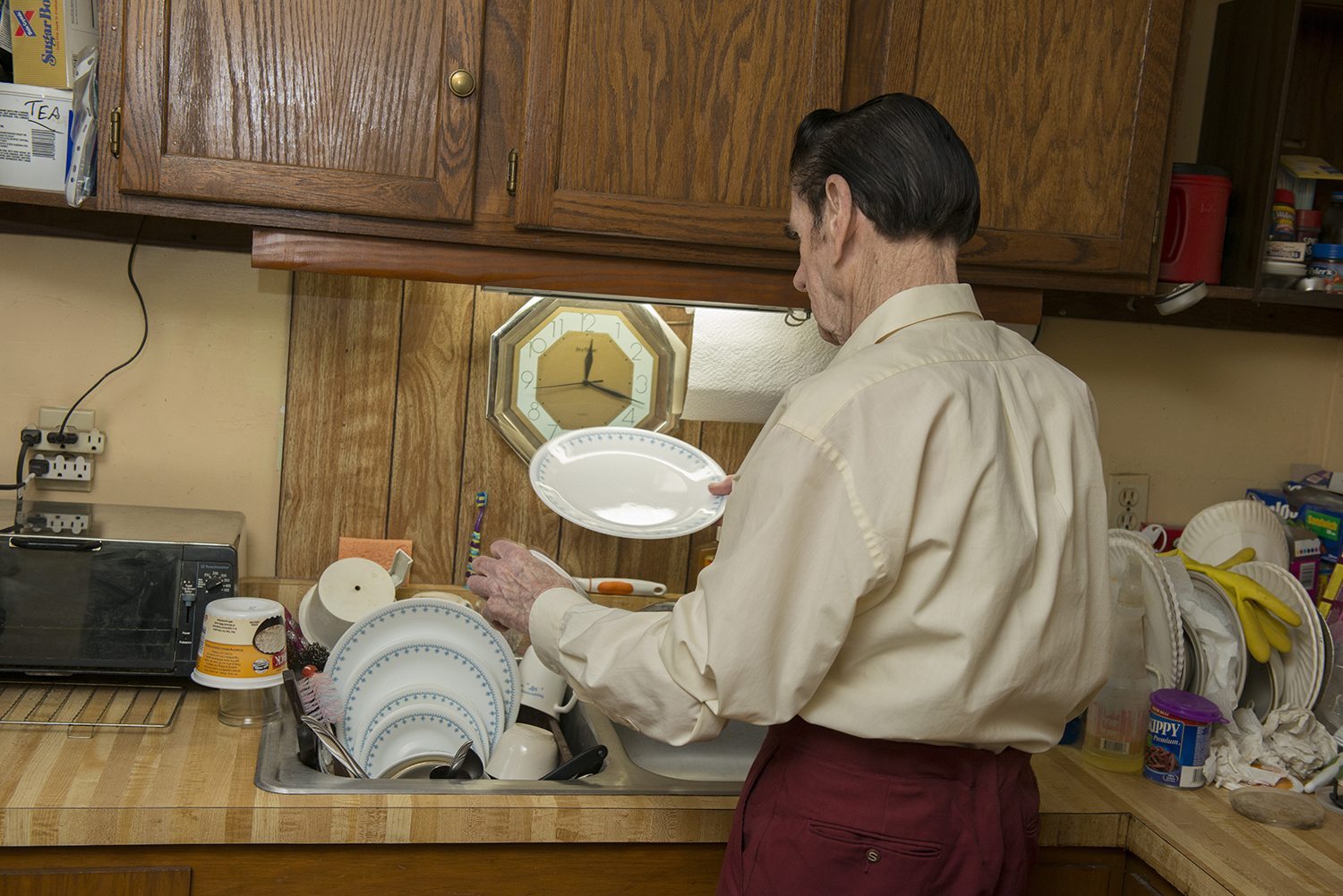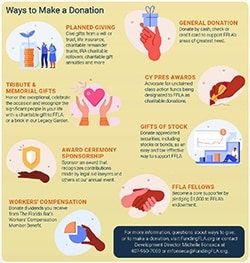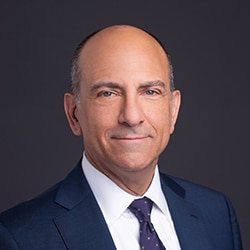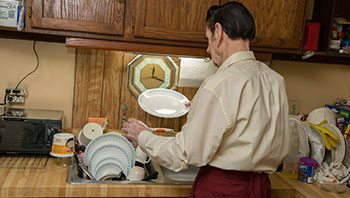
“Thomas Mayer,” 86, lives on $911 a month in Social Security and $16 a month in food stamps, the minimum benefit under the federal Supplemental Nutrition Assistance Program. Although he asked that his real name not be used, Mayer agreed to be photographed.
Thomas Mayer, 86, lives alone in a two-bedroom, tin-roofed house in the woods of rural Calhoun County, Fla., where his only companion is a 2-year-old Labrador mix named Boy.
Mayer, not his real name, does his own plumbing, air conditioning, electrical work and auto repair, enabling him to live on just $911 a month in Social Security.
But when the Florida Department of Children and Families (DCF) notified him that he was no longer eligible to receive $16 a month in food stamps, he finally came up against a problem he couldn’t solve on his own.
A retired Volkswagen engineer who spent his pension on his ex-wife’s medical care when she developed ovarian cancer decades ago, Mayer uses the Internet daily to scout for bargains and troubleshoot, so that’s where he turned in search of legal aid.
He came across the Florida Senior Legal Helpline run by Bay Area Legal Services in Tampa, which is funded primarily by the Florida Department of Elder Affairs and through a $21,590 grant from The Florida Bar Foundation.
“The Helpline is analogous to triage in the medical sense, where people call with what they think is a civil legal problem, and it’s our job to spot the issue, and then give them legal advice, said Ellen Cheek, the Senior Legal Helpline attorney who fielded Mayer’s call.
In a form letter, DCF had told Mayer his income was too high, but it hadn’t changed, and he’d been receiving food stamps for 20 years under a federal Supplemental Nutrition Assistance Program minimum allotment policy governing small households.
“He was offended because the reason they’d given him for terminating him after all these years was so vague, he couldn’t possibly challenge it,” Cheek said. She had seen other cases where she suspected the state had misinterpreted a federal rule governing public benefits, and in such cases she always turned to the experts at another Florida Bar Foundation grantee, Florida Legal Services, for advice.
“Their job is to provide that support and that technical assistance,” Cheek said. “They told me that if I could get it referred to Legal Services of North Florida, then Florida Legal Services would be the technical assistance and support. And that’s what happened.”
The result was better than Mayer could have possibly imagined. Working together, the legal aid attorneys found the state had developed a policy that incorrectly interpreted federal law, hurting not only Mayer, but others in the same eligibility category.
Florida Legal Services attorneys Cindy Huddleston and Valory Greenfield, along with Paul Arnold of Legal Services of North Florida, also a Florida Bar Foundation grantee, filed a rule challenge before an administrative law judge of the Division of Administrative Hearings (DOAH), asking that DCF be ordered to stop using its policy to deny minimum benefits to those eligible under the federal regulation, effective immediately.
Arnold prevailed in Mayer’s case before a DCF hearing officer, enabling him to receive his benefits again while the rule challenge proceeded. Huddleston and Greenfield led negotiations with the assistant general counsel of DCF assigned to defend the agency. After acknowledging that its interpretation violated federal law, DCF agreed to identify and retroactively restore benefits to those adversely affected by the illegal minimum allotment policy.
As a result, more than 33,000 food stamp recipients had their cases reopened and their $16 monthly benefit restored. By a conservative estimate based on a six-month period for those households, the rule challenge resulted in the distribution of nearly $3 million in food stamps. This doesn’t take into account future applicants who would have been improperly denied the minimum benefit, or the future benefits paid to those households whose minimum allotment was restored.
Nationally, about 41 percent of those receiving the minimum benefit are elderly, and an additional 25 percent, although not elderly, are disabled, according to the U.S. Department of Agriculture.
Mayer is well aware that his case affected thousands who might not have had the wherewithal to challenge the rule themselves.
“Half of them are probably in pretty bad health on top of everything else,” Mayer said. “They are trying to deal with all the paperwork and that stuff. When they are being told, ‘We can’t pay you anymore,’ they accept it. They say, ‘What can we do?’ and they give up. So I’m glad I did something to help those people, too. It makes me feel great. It makes me feel like a hero.” Arnold said it’s easy to underestimate the impact of $16 a month in food stamps.
“It seems like a small amount of money, but for our clients, they know how to stretch money, and it made a big impact,” Arnold said.
A brief conversation with Mayer about his shopping habits is enough to drive home Arnold’s point. Mayer has found fresh produce too expensive, so he doesn’t buy it anymore.
“It’s really too much for me to pay for it, so I buy cans. I eat mostly from vegetable cans,” Mayer said. “The cheapest place is the dollar store where I can get them for about 50 cents each.” He also shops at Walmart, where he can buy frozen dinners for $1, and adds noodles or potatoes for a little extra bulk.
“They used to give five meatballs in those things. Now there are only four in it. It used to be beef. Now it’s chicken and pork, the cheapest meat they can buy,” Mayer said.
The successful resolution of the rule challenge will allow for better nutrition for tens of thousands of elderly and disabled Floridians in small households, as well as millions of federal dollars from SNAP that will be spent at the state’s food retailers. And the outcome was a bargain from a legal standpoint in that it was resolved in a matter of a few months, with minimal litigation.
“When faced with an obvious violation it’s often because of a good working relationship with agency counsel that such resolutions are achieved,” said Greenfield, explaining that she and Huddleston have formed relationships and built a reputation with DCF counsel over many years.
Cheek said the case is a great example of why the Helpline, the referral system and collaboration among legal aid programs are so important. With just a phone call, Mayer, who faced a two-hour round trip to the nearest legal aid office, was able to set his case in motion, a case that ultimately affected tens of thousands.
“This is really a case where the system worked exactly as we envisioned,” Cheek said.
